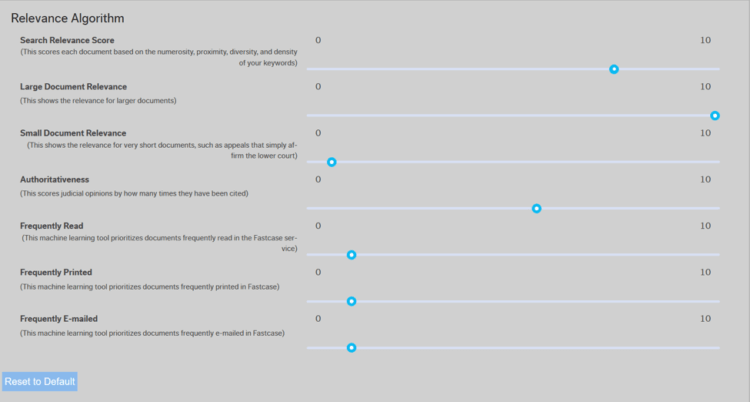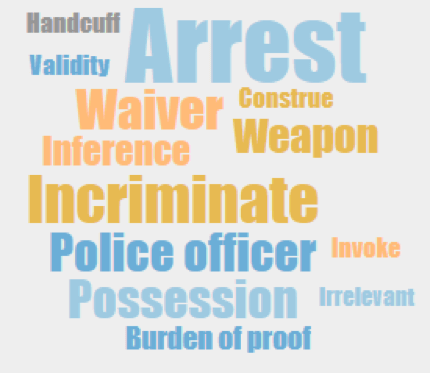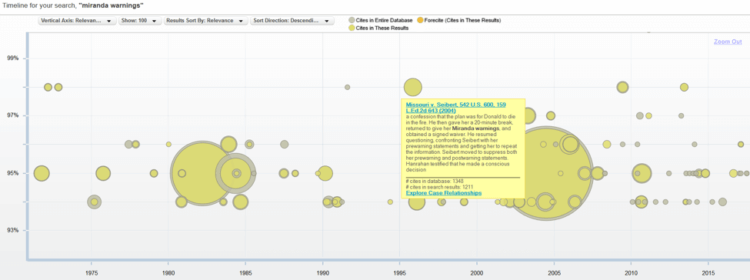Legal research can be tedious and time-consuming, but it is also often the key to success as a lawyer. Having the right case or statute in hand can mean the difference between winning your case or losing it—or between a big settlement and a small one.
While there are plenty of tools and services available making legal research easier than ever, there is no substitute for a good foundation of research techniques. Check out our list of tips for faster and smarter legal research.
1. Use a variety of sources
There are many places to look when it comes to legal research, including plenty of companies that provide exceptional services. However, since there’s no such thing as a ‘perfect’ legal research source, it’s important to choose more than one. Each search resource uses different algorithms to pull the most relevant results, so by using more than one, you’re much more likely to find a variety of useful cases for your needs.
Of course, legal research is expensive and you may be limited to the resources paid for by your firm. It is a wealthy attorney indeed that can afford West, Lexis, Fastcase, and Bloomberg all at the same time.
Thankfully, regardless of your budget or available resources, you probably have access to more than you think. Google Scholar is a solid free option for basic case law searches, and you likely have free access to a more comprehensive research service through your Bar Association. (Check through your local or state Bar Association’s website for options.)
If you really can’t afford to use multiple sources, don’t despair! Legal research providers are becoming increasingly aware of the problems of algorithmic bias and are taking steps to solve the problem.
Fastcase, for example, enables you to change the relevance algorithm for searches on the fly, letting you re-weight different factors and pull different documents to the top of the list. The important thing here is not to rely on just one relevance algorithm to tell you which cases are important.
AI tools for legal research is also advancing at a rapid rate, check out our guide: AI for Legal Research: Tools, Tips, and Examples

2. Refine your search terms
Planning ahead and generating search terms increases the value of the time you spend actually researching. Brainstorming and recording different terms keeps your research on task and focused, leading to a better end product.
The best approach for refining your search terms has five steps:
-
- Identify the salient facts and important legal concepts involved in your question.
- Write down search terms that are closely related to those facts and issues.
- Collect those terms together in a search query.
- Quickly skim your results.
- Change or add terms based on your initial results!
Many lawyers skip that last step, but it’s very important—don’t assume that your first search is the best one possible.
There are a variety of great tools to help you with this process. If you use Westlaw or Lexis, their headnotes can be a really good starting point for figuring out some of the legal terminology on a given topic. If you use Fastcase, you’ll be shown a tag cloud with your results that suggests search terms to add or remove, so you can refine your initial search.
Remember our first tip about using multiple sources! The big three all have distinct tools that help with different steps.

You may like these posts
3. Use the asterisk
Search engines will only look for what you tell them to look for, which means the word form of the word you enter is the only form that will show up in the results. If you search for arrest, don’t expect results for arresting, arrested, or arrests.
This is where the asterisk, or ‘root expander’ for searches comes in. If you cut off the end of a word and replace it with a *, most research engines will return any word that begins with the same letters. This resource is extremely useful when you are not sure which tense will be used for a particular term. Using the * also casts a larger net while ensuring the results remain on topic.
Beware of overusing the asterisk, though. A search for mari* will give you results for married and marriage—but also maritime!
4. Stay focused on the issue
You do not need to read every treatise, law review article, primer, and annotation that relates to your question. What you really need is to find the case, statute, or regulation that controls your issue and will help you win your case.
There is a lot of information available from most of the big legal research providers. If you’ve followed our tip about using more than one source like Lexis, Fastcase, West, Bloomberg, and others, then you’re looking at multiple databases that each contain tens of millions of documents!
With all that information out there, it can be easy to get sidetracked or lost. The answers you need to help your client are hidden in those vast swaths of information, so push the flood of unrelated material aside by staying centered on the issue.
Remind yourself frequently of the issue at hand to keep yourself focused and to create greater value for your client.
5. Search for synonyms
Remember the asterisk tip? Never forget that search engines will only give you results based on the words you have searched for. If you search for robbery, you may also be interested in cases about theft, thieves, stealing, burglars, etc., but the search engine won’t know that—it will only be looking for robbery.
Use synonyms to get a variety of results on a similar subject, or as an aide when you’re feeling stuck.
Also, do not make the mistake of assuming that you know which word a judge or legislator will use to describe something. You can never know when a similar word will be in the one case you really need to find, so search using all of them!
6. Stay within your provider’s plan
If you work at a large law firm, staying within your provider’s plan may not be an issue for you, but many legal research providers sell plans that are limited in scope—they’ll include access to some jurisdictions but charge extra for more. That’s perfectly fine if you mostly search in one jurisdiction or one area of the law, but be careful! Some research platforms will tack on large extra charges to your bill if you find yourself viewing something that isn’t included in your contract.
Before you sign on the dotted line, make sure to read your contract and find out if you’re at risk of incurring “off-plan” fees. Look for a provider that offers more inclusive options.
If you do find out that your service has out-of-plan fees, don’t worry! There are often free resources available that can help you fill in the gaps. Court websites and Google Scholar are excellent resources when you can’t get to the material through your primary research platform.
7. Remember the rest of the internet!
If only there was a place where we could go to get questions answered, a place with a lot of free information that could be accessed from anywhere with a computer or a phone …
Oh wait; that’s the internet!
Legal research databases like Fastcase, Westlaw, and Lexis are fantastic resources when you know what to look for—but oftentimes, when you first start researching an issue you’ve never encountered before, you’ll have absolutely no idea where to begin.
Don’t be afraid to simply punch a simple search into Google or Wikipedia. Lots of other lawyers are publishing blogs, articles, think-pieces, and commentaries on every subject you can think of—use them to help you get started!
There are also dockets, state websites, law schools publishing free information, and more. Use all of these resources to get a solid footing, and to start building your list of search terms or important cases to look up in your chosen legal research platform.
8. Take regular breaks
Everyone gets stuck at some point in their legal research. That’s OK! It’s important to recognize when you’ve hit a barrier, so you can step away to take a break.
A 10- or 20-minute break can refocus and reenergize your mind, helping you approach the question from a different angle. Get out of your research, go for a walk, and come back.
When you come back to your research, you may find fresh ideas, or find that you’ve reached the point where it is time to stop researching and start writing. Whatever the case, breaks can clear your mind and prepare you to search effectively again.
9. Ask for help
Major research platforms like Westlaw, Fastcase, and Lexis have reference attorneys on hand to assist you with your research. Reference support is often free, so if you truly get stuck in your research, don’t keep banging your head against a wall—get help! These attorneys are professional legal researchers and have a lot of experience to share.
If you’re not able to share your issue with a reference attorney, seek help from other attorneys at your firm or from a mentor or colleague you trust. A fresh pair of eyes, a unique set of experiences, and a different way of thinking are sure to help when you feel stuck in your legal research. Wherever you are, there are likely people around who are willing to help.
10. Know when you are done
One of the hardest parts of legal research is knowing when it’s time to walk away. More often than not, your research will pull up more documents than you could possibly read in any reasonable span of time, so how far down the list should you go? When have you read enough?
Often, there isn’t a crystal-clear answer to questions requiring detailed research. You need to find the most recent, relevant, and important cases and statutes on a subject—but how do you know when the next case on the list isn’t going to be worth your time?
If these three things are true, it’s probably time to end your search:
- You keep coming back to the same cases and statutes, even when searching different sources.
- You can vocalize and explain the legal principle clearly.
- You’ve found and understood some law that is unfavorable to you.
Here, again, there are tools that can assist. Most research services automatically sort by relevance, which measures how frequently your terms come up. Once you’ve reached the low-relevance scores, you’re probably looking at documents that don’t actually have much to say on your subject.
A good research platform will also allow you to sort by how frequently a document is cited. Once you’ve gotten down to cases and statutes that nobody is citing, you’ve probably seen the most important law. Make sure to sort by date, as well—so that you can see if there have been any recent developments you need to be aware of!
A couple of services (most notably Fastcase and Ravel) can even show you visualizations that let you present cases according to date, relevance, and importance at the same time so you can quickly separate the wheat from the chaff and read only what you need to.

Take a methodical approach for better legal research
Legal research is most effective when it:
- Is well-planned.
- Consults new materials.
- Considers new terms.
- Effectively leverages technology.
Remember to take breaks, ask for help, and know when you’re finished. With the right approach, legal research is less daunting than you think. Speaking of which: Congratulations, you’re done!
About Jeff
Jeffrey Asjes is the Research Platform product manager at Fastcase. He is responsible for planning and implementing new features for Fastcase, and improving the user experience. Prior to joining the Fastcase team, Jeffrey worked on policy and outreach for the United Nations Information Center and the Partnership for a Secure America. Born in Zurich, Switzerland, Jeffrey Asjes earned an A.B. from Princeton University and a J.D. from the Georgetown University Law Center.
About Brock
Brock Foley is a 3L at Brigham Young University Law School. He is currently working as an intern at Fastcase. He was drawn to legal tech because of his interest in closing the justice gap and increasing access to justice. His belief that the law should be used to help those in need has led him to volunteer with the public defenders and with CARA.
We published this blog post in July 2018. Last updated: .
Categorized in: Technology
Do more with Duo
Meet Clio Duo, your AI partner that amplifies your workflow, helping you spend more time on the work that only you can do.
Get Started Now






